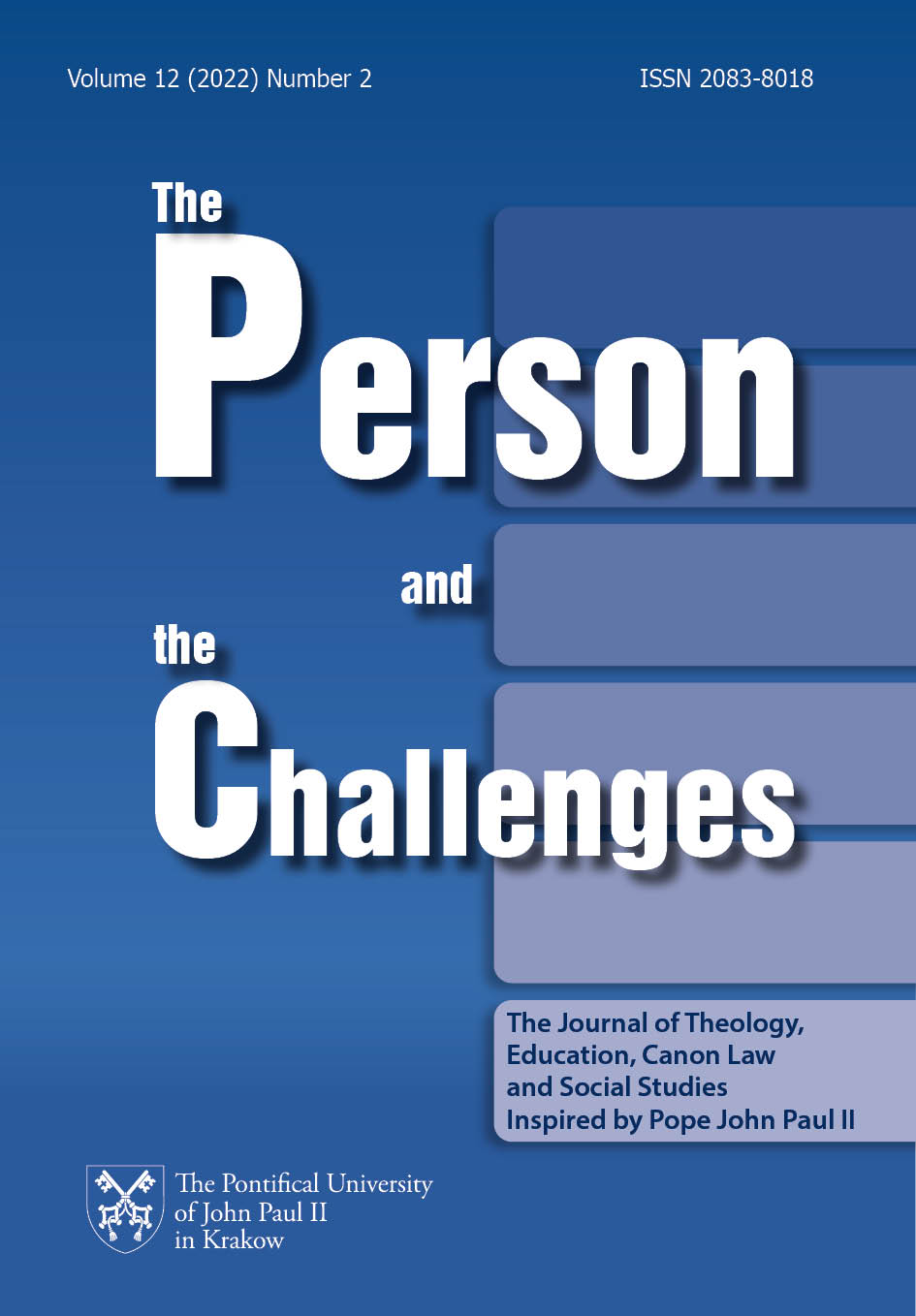The Relationship between the First Proclamation and a Kerygmatic type of Catechesis
DOI:
https://doi.org/10.15633/pch.12211Słowa kluczowe:
Directory for Catechesis, First Proclamation, Kerygmatic CatechesisAbstrakt
The aim of this paper is to try and highlight the fecund relationship between the first proclamation and a kerygmatic type of catechesis as this is found in the Directory for Catechesis promulgated by the Pontifical Council for Promoting the New Evangelization. In Evangelii Gaudium, the first proclamation has been given a renewed meaning in that it is not only considered as the first proclamation in time, but it is extended as a primary proclamation throughout the life of the person. The kerygmatic type of catechesis posited in the Directory seeks to present Jesus Christ in a way in which is the Good News becomes an accompanying factor throughout the entire life of the person. It is this person-centredness which is at the basis of the relationship between the first proclamation and a kerygmatic type of catechesis.
Bibliografia
Alberich E., Vallabaraj J., Communicating a Faith that Transforms. A Handbook of Fundamental Catechetics, Bangalore 2004, Kristu Jyoti Publications.
Alberich E., La catechesi oggi. Manuale di catechetica fondamentale, Leumann (To) 2001, Editrice Elledici.
Biancardi G., Gianetto U., Storia della catechesi. 4. Il movimento catechistico, Roma 2016, LAS.
Congregation for the Clergy, General Directory for Catechesis (11 August 1997), http://www.vatican.va/roman_curia/congregations/cclergy/documents/rc_con_ccatheduc_doc_17041998_directory-for-catechesis_en.html (01.02.2021).
Francis, Apostolic Exhortation Evangelii Gaudium (24 November 2013), http://www.vatican.va/content/francesco/en/apost_exhortations/documents/papa-francesco_esortazione-ap_20131124_evangelii-gaudium.html (01.02.2021).
Gevaert J., La proposta del Vangelo a chi non conosce il Cristo. Finalità, destinatari, contenuti, modalità di presenza, Leumann (To) 2001, Editrice Elledici.
Grennon Brooks J., M.G. Brooks, In Search of Understanding. The Case for Constructivist Classrooms, New Jersey 2001, Prentice-Hall.
Lamon M., Learning Theory. Constructivist Approach, https://education.stateuniversity.com/pages/2174/Learning-Theory-CONSTRUCTIVIST-APPROACH.html (01.02.2021).
Läpple A., Breve storia della catechesi, Brescia 1985, Querinana.
McLeod S., Constructivism as a theory for teaching and learning, https://www.simplypsychology.org/constructivism.html (01.02.2021).
Pontifical Council for Promoting New Evangelization, Directory for Catechesis (23 March 2020), London 2020, Catholic Truth Society.
Sultana C.M., Catechesis in Europe during the 20th Century, in: G. Bonney, R. Vicent, Sophia – Paideia. Sapienza e Educazione (Sir 1, 27). Miscellanea di studi offerti in onore del prof. Don Mario Cimosa, Roma 2012, LAS.
Sultana C.M., The Role of the Family in Educating Children for the Faith, “Roczniki Theologiczne. Annals of Theology” 62 (2015) 11, pp. 5–17.
Vatican Council II, Pastoral Constitution on the Church in the Modern World Gaudium et Spes (7 December 1965), http://www.vatican.va/archive/hist_councils/ii_vatican_council/documents/vat-ii_const_19651207_gaudium-et-spes_en.html (13.12.2020).
Vygotsky L., Mind in Society. The Development of Higher Psychological Processes, Cambridge (MA)–London 1978, Harvard University Press.
Vygotsky L., Thought and Language, Connecticut 2012, Martino Publishing.
Wheeler S., Learning Theories: Jerome Bruner on the Scaffolding of Learning, https://www.teachthought.com/learning/learning-theories-jerome-bruner-scaffoldinglearning/(01.02.2021).
WNET Education, Concept to Classroom. Workshop: Constructivism as a Paradigm for Teaching and Learning, https://www.thirteen.org/edonline/concept2class/constructivism/index_sub2.html (01.02.2021).
Pobrania
Opublikowane
Numer
Dział
Licencja
Prawa autorskie (c) 2022 Carl-Mario Sultana

Utwór dostępny jest na licencji Creative Commons Uznanie autorstwa 4.0 Międzynarodowe.
Autorzy publikujący w czasopiśmie udzielają jego wydawcy zgody o następującej treści:
- Autor zachowuje autorskie prawa majątkowe do utworu, a jednocześnie udziela wydawcy czasopisma zgody na jego pierwszą publikację w wersji drukowanej i wersji online na licencji Creative Commons Uznanie autorstwa 4.0 Międzynarodowe oraz zgody na wykonywanie opracowań, w tym przekładów.
- Autor ma możliwość udzielania zgody niewyłącznej na opublikowanie utworu w wersji, która ukazała się w czasopiśmie (np. zamieszczenia go w repozytorium instytucjonalnym lub opublikowania w książce), wraz z informacją o jego pierwszej publikacji w czasopiśmie.
- Autor może umieścić swój utwór online (np. w repozytorium instytucjonalnym lub na swojej stronie internetowej) jeszcze przed zgłoszeniem utworu do czasopisma.

